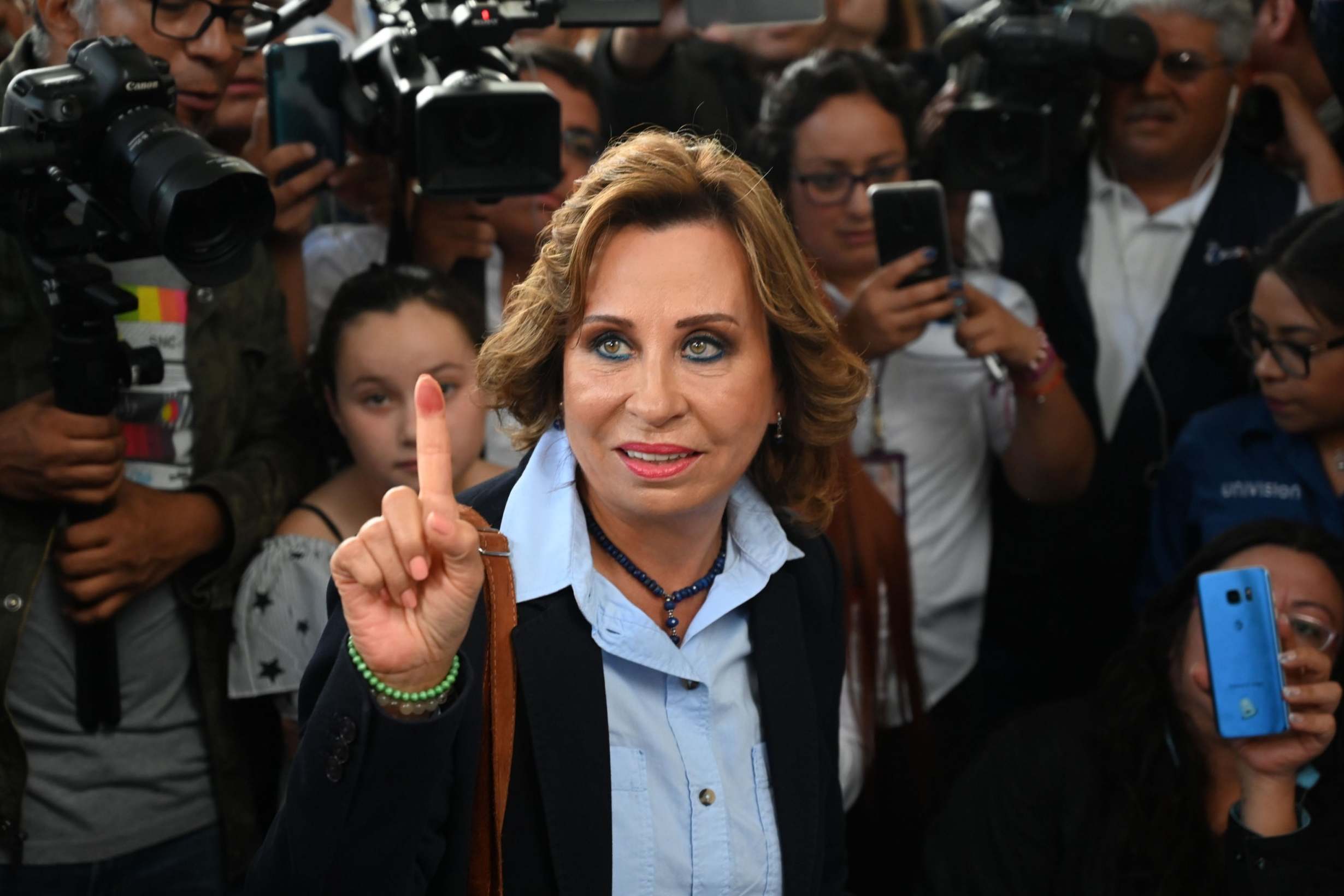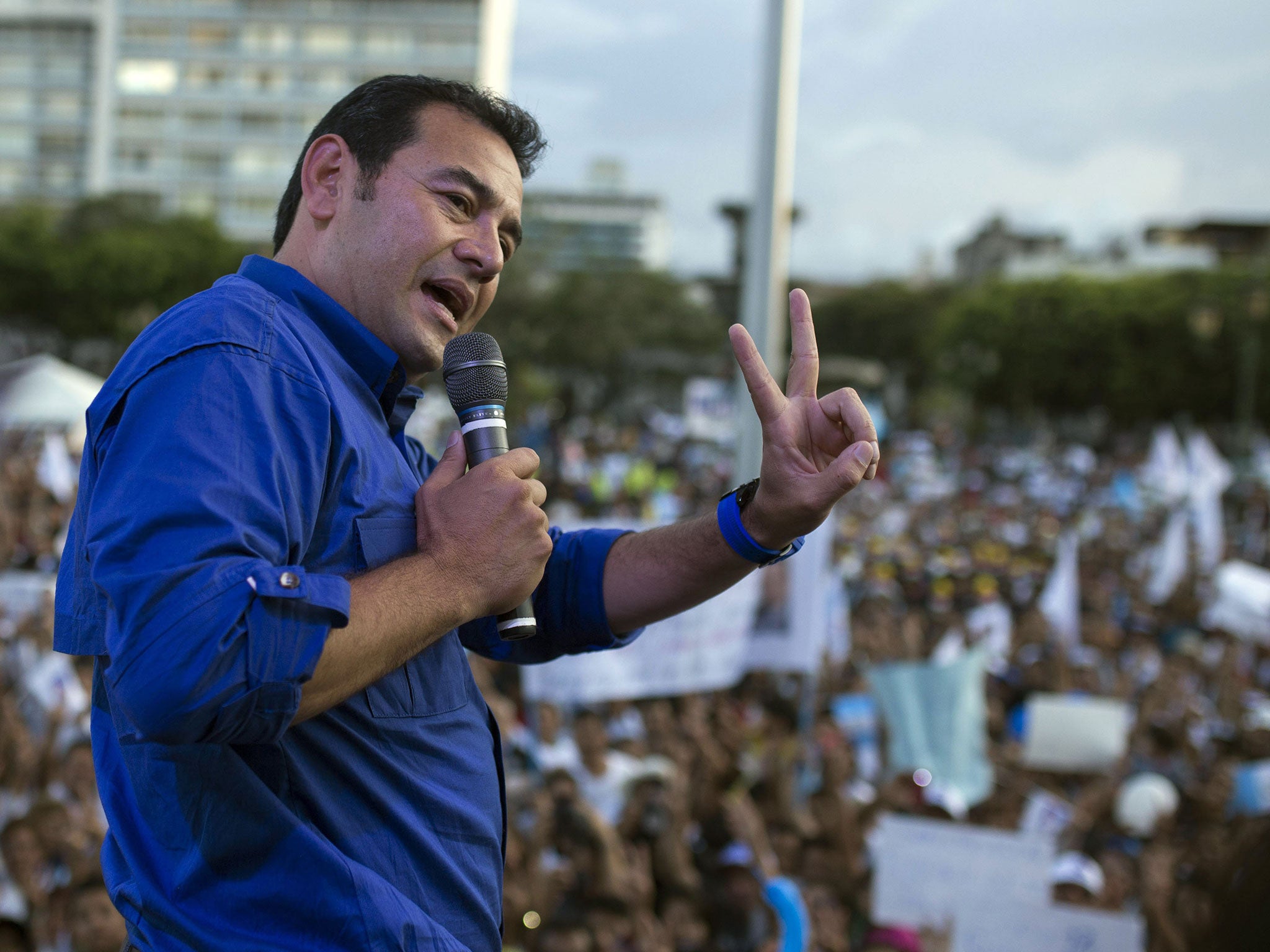Guatemala election: Early results show former first lady Sandra Torres likely to be next president
'We have to sort out our problems here,' the businesswoman has said

Your support helps us to tell the story
From reproductive rights to climate change to Big Tech, The Independent is on the ground when the story is developing. Whether it's investigating the financials of Elon Musk's pro-Trump PAC or producing our latest documentary, 'The A Word', which shines a light on the American women fighting for reproductive rights, we know how important it is to parse out the facts from the messaging.
At such a critical moment in US history, we need reporters on the ground. Your donation allows us to keep sending journalists to speak to both sides of the story.
The Independent is trusted by Americans across the entire political spectrum. And unlike many other quality news outlets, we choose not to lock Americans out of our reporting and analysis with paywalls. We believe quality journalism should be available to everyone, paid for by those who can afford it.
Your support makes all the difference.A former first lady is in the lead to be Guatemala's next president, early election results have shown.
Sandra Torres, 64, a businesswoman, captured 24 per cent of Sunday’s vote ahead of four-time conservative presidential candidate Alejandro Giammattei, who had 15 per cent.
With no candidate appearing to win more than 50 per cent of the vote, a second vote is likely to take place in August.
The next president, who will start their four-year term in January, would need to tackle violence, poverty and outward migration in the country.
Ms Torres, of the centre-left National Unity of Hope (UNE) party, has said she wants to send troops into the streets to fight drug gangs, use welfare programmes to tackle poverty, and work with businesses.
"We have to sort out our problems here, and part of the reason for the migration is the lack of jobs, the gap in wages between the United States and here," she said. "We need to work with the business community to revive the economy."
Other candidates in the running for the presidency are Roberto Arzu, a businessman, Edmond Auguste Mulet Lesieur, a diplomat, and Thelma Cabrera, an indigenous human rights advocate.
This year tens of thousands of Guatemalans have fled poverty and gang violence to seek a new life in the United States, stoking tensions with President Donald Trump.
"There is a belief that instead of advancing in these four years of government, we've gone backwards," said Marco Rene Cuellar, 39, the first to vote at the Mixed Rural School in the municipality of Santa Catarina Pinula. "We've lost our way as a country, but we should not lose faith in the democratic process we have."
Three of the last four elected presidents, including Alvaro Colom, Ms Torres former husband, have been accused of corruption.

Outgoing President Jimmy Morales, who is barred from seeking re-election, took office in 2016 promising to root out corruption but was soon accused of campaign finance allegations himself. Nearly a third of Guatemalan adults surveyed believe the election will be plagued by fraud, a recent poll from CID Gallup Latino america found.
For the first time Guatemalans could cast ballots from abroad: At least 60,000 were eligible to vote in Los Angeles, New York, Maryland and Washington, D.C., all home to large numbers of Guatemalan emigres.
Fernando Barrillas, 44-year-old Guatemalan citizen, said surging migration was an issue for him. "As long as the root causes that propel migration are not addressed, which are poverty and inequality, we will continue to remain without the best men and women, young people who they are the engine of the country," he said.
The head of the electoral tribunal said late on Sunday it could take approximately two weeks to have definitive results from across the Central American country.
Join our commenting forum
Join thought-provoking conversations, follow other Independent readers and see their replies
Comments